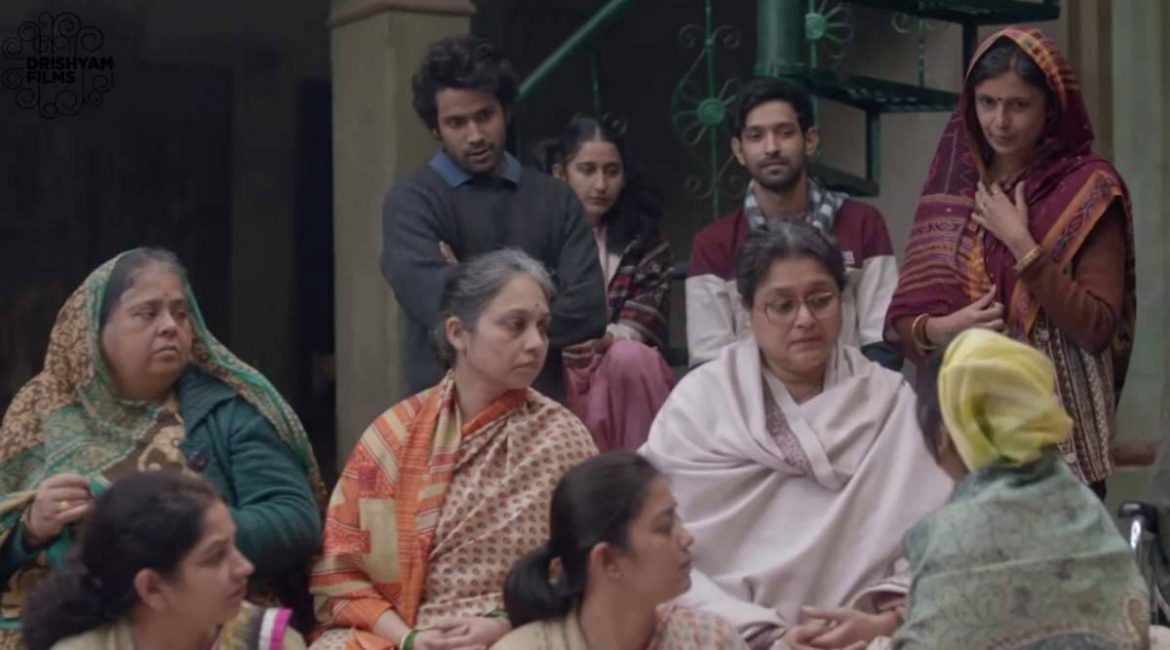The Great Indian Family:
If there’s one thing Seema Pahwa’s debut directorial, Ram Prasad Ki Tehrvi, does really well, it is evoking a strong sense of nostalgia among those whose memories of childhood include visits to the ‘native place’ on holidays or special occasions and time spent with a gaggle of relatives.
The film is set in one of those huge havelis in Lucknow, with innumerable rooms and a central courtyard or aangan. At the beginning the camera moves through the dark and empty corridors to a room where, rather incongruously, a child is playing a piano. Ramprasad Bhargava (Naseeruddin Shah) is a music teacher, who is correcting him, and a minute later, he is slumped on the piano—dead. Soon the house fills up with family, the one upmanship already on over who arrived first and what mode of transport they used. The one who came by taxi proves he is better off and a more devoted son than the bus traveller.
The dead man’s wife, with no name but Amma (Supriya Pathak), sits looking distraught and repeating the “kaise hua” sequence so many times, it becomes a comic gag. The four sons, two daughters, their spouses and children, along with other uncles, aunts and neighbours keep the frames crowded at all times. It is through conversations between the brothers on the terrace, and the women in the kitchen, that the long-held grudges against the parents and one another come spilling out. The youngest, mother’s pet Nishant (Parambrata Chattopadhyay), is resented because he went to Mumbai with his aspiring actress wife (Konkona Sen Sharma), and is financially secure enough to be able to lend money to his brothers. The oldest (Manoj Pahwa) has a drinking problem, the second (Vinay Pathak) is mocked for being a gharjamai, the third (Ninad Kamath) felt neglected all his life for being in the middle.
The older grandkids (Vikrant Massey, Mayank Pahwa) cannot keep up the pretence of grieving for too long and enjoy the holiday. Amma notices all this and says at some point that the family seems to have forgotten why they have come there and who they have lost.
The family discovers that their father left behind a large debt that the heirs will have to repay. None of them wants to look after the mother, but are willing to sell the house in a hurry to settle the debt. Amma sadly comments that there must have been something amiss with their upbringing; they never learnt to say thank you or sorry.. As Nishant says, the parents never gave them any responsibilities, so they never learnt to take on any.
The film is neither plot nor character driven, just a series of interactions and observations, some bitter, some humorous, eventually leading to the obvious conclusion about contemporary lifestyles fracturing family ties. The same thing could perhaps have been expressed with fewer characters, so that there could be some depth to the goings-on, instead of a brisk skimming through. However, it is remarkable how Pahwa not just signed up a massive cast (Manish Mundhra is the producer), but managed a location shoot and gave most of them at least one scene in which to shine. Ramprasad Ki Tehrvi is a good debut, and a fine actress has proved to be a talented director too.

